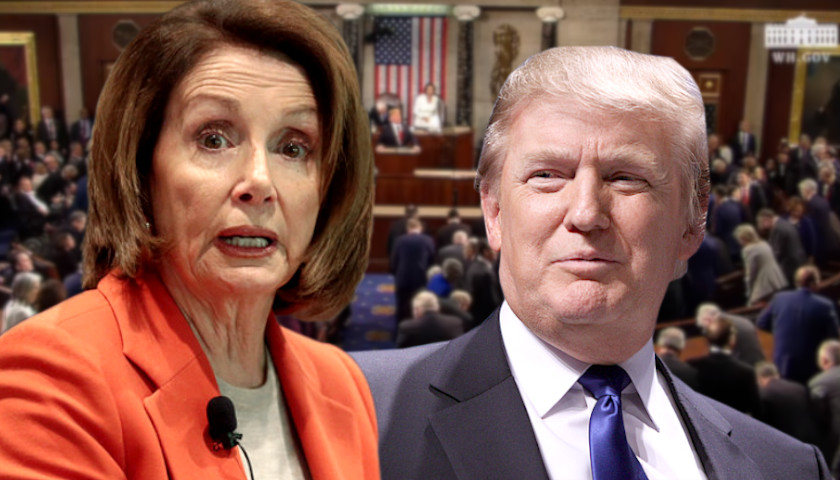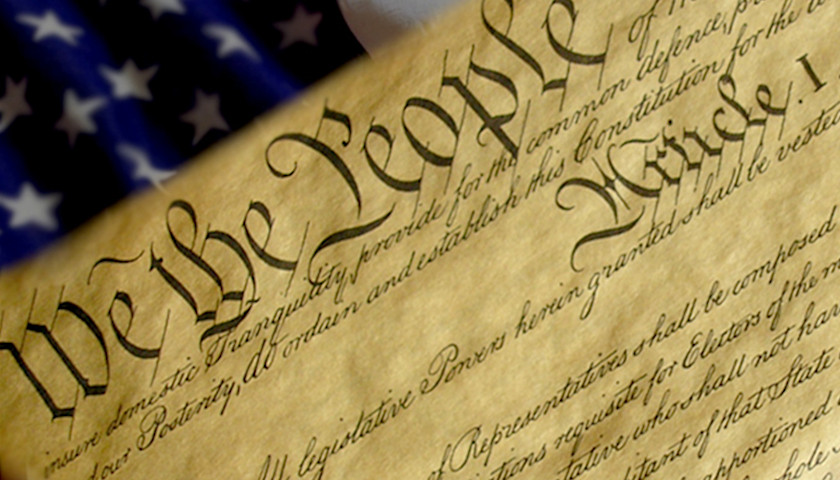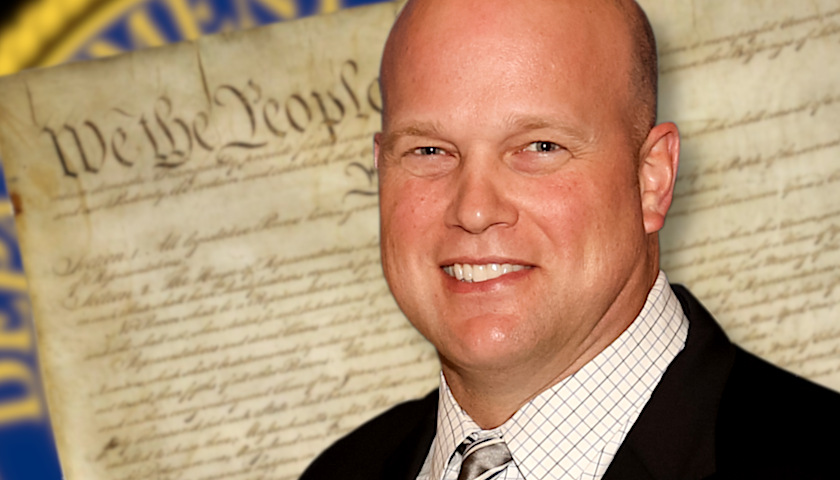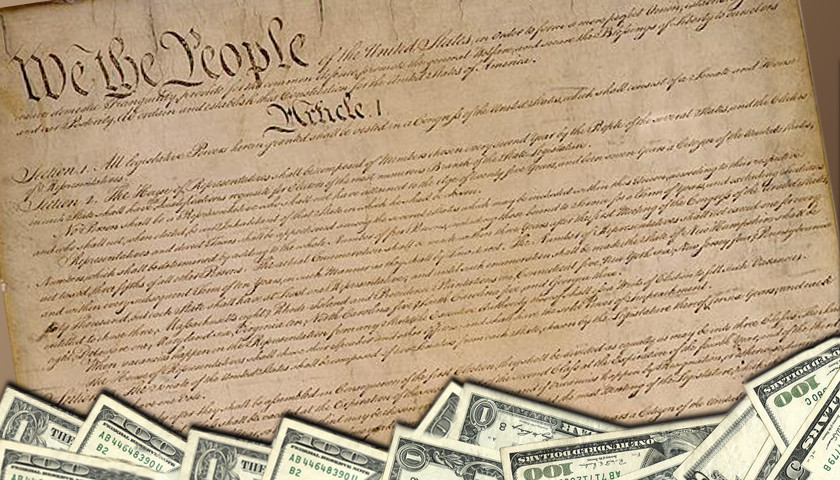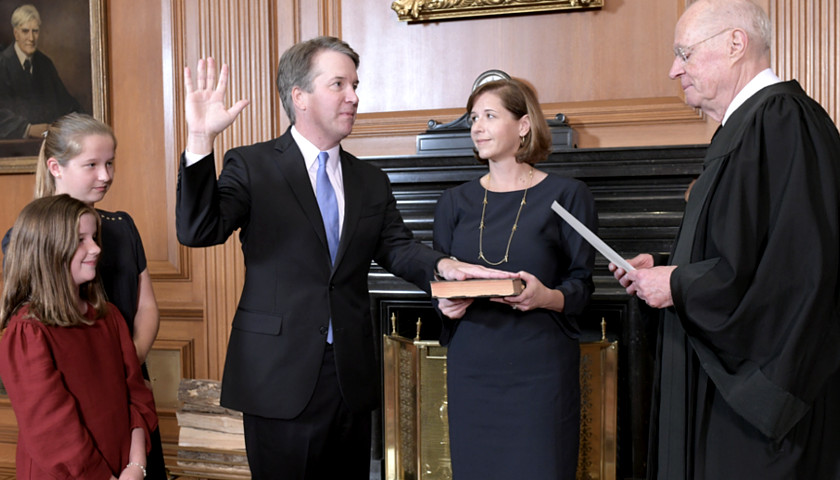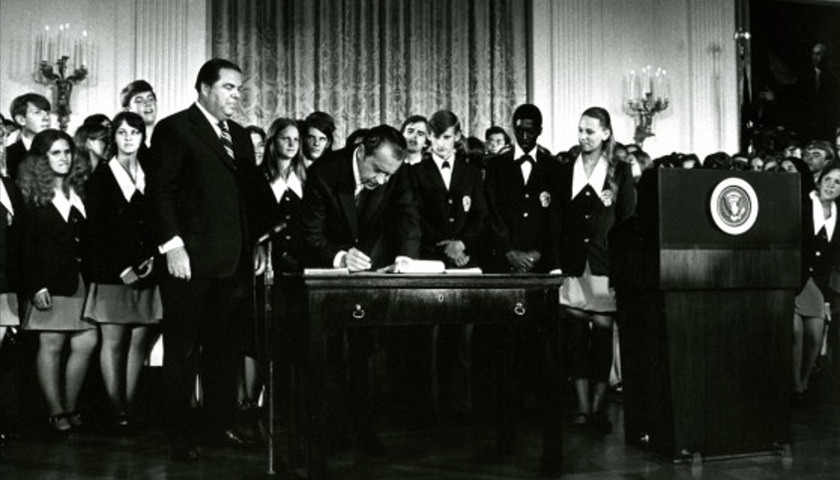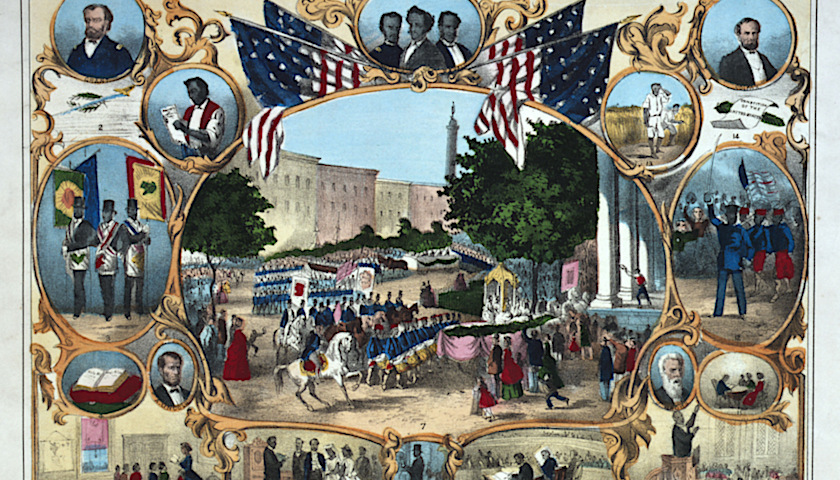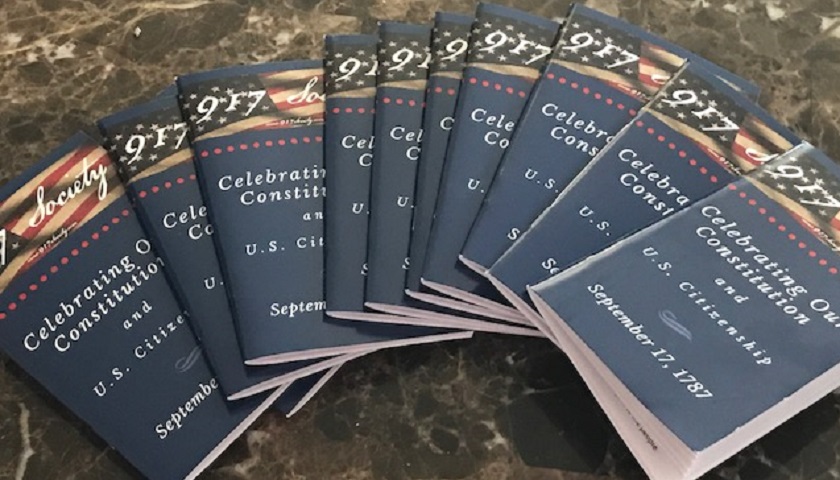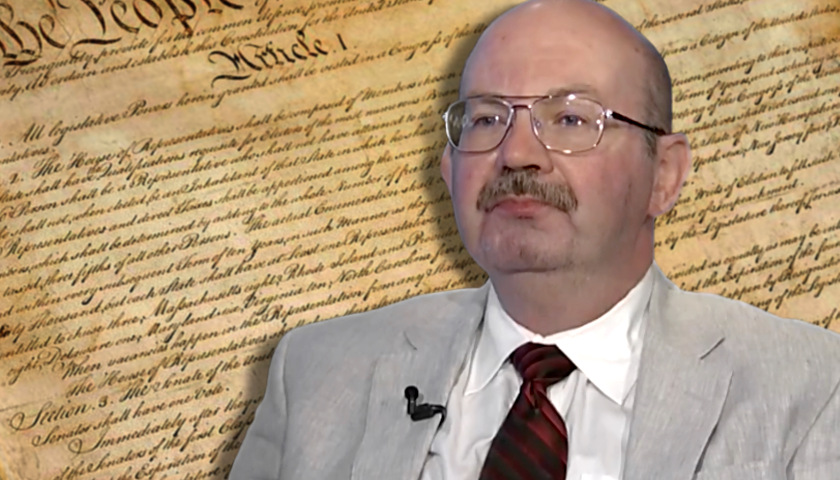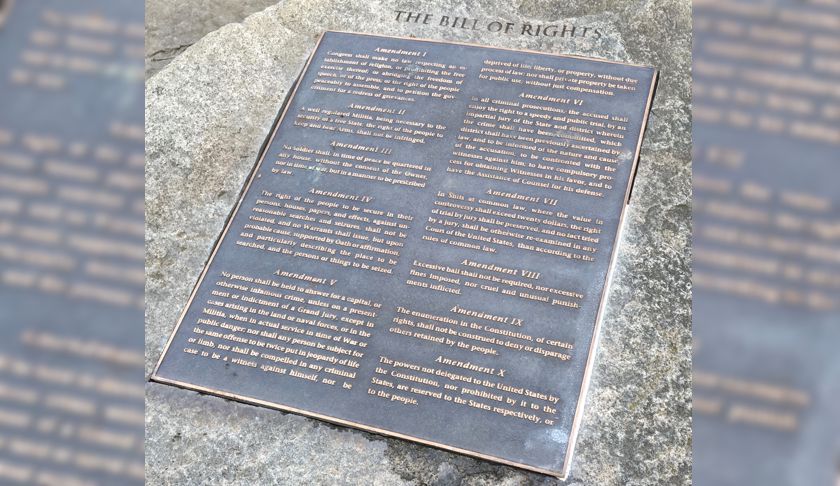When any American President formally speaks before a joint session of the two houses of the U.S. Congress, it is considered a matter of great importance to our nation — and certainly ought to be viewed as quite significant by members of Congress. The State-of-the-Union (SOTU) address — regardless of which President is delivering it, and irrespective of his or her party affiliation — is never trivial. When a President gives his or her remarks, both houses of Congress are officially in session at that point and — just as at any other such time — the words spoken to those persons present within the House chamber are to be reduced to writing and spread upon the Congressional Record. This, of course, is to preserve for posterity such historic comments and to make them more widely available to anyone desiring to reflect back upon them. Hence, it is with some surprise that the full and complete verbatim text of President Donald Trump’s February 5, 2019 speech — and, as it turns out, likewise his February 28, 2017 as well as his January 30, 2018 SOTU addresses – are all completely missing from the Congressional Record. So, I did some investigating.…
Read the full storySearch Results for: "Gregory Watson"
Gregory Watson Commentary: Woodrow Wilson Began the Modern Tradition of Personally Delivering the SOTU Address to Congress in Order to Sell His Progressive Agenda to the Country
Among the many duties of the President of the United States is one that is found in Article II, Section 3 of the U.S. Constitution: “He shall from time to time give to the Congress Information of the State of the Union, and recommend to their Consideration such Measures as he shall judge necessary and expedient….” The Constitution does not specify in what manner the President is expected to furnish such “information” nor does it even suggest any certain season of the year — or any particular interval of time — that such “information” be provided. And, if conveyed verbally, the Constitution is silent as to from what physical location the President should perform this function. Commonly referred to as the “State-of-the-Union” address, as President Franklin Delano Roosevelt dubbed it in 1934, President George Washington, the first man to occupy the high office of President of the United States, delivered the initial such regular, annual message before a joint session of Congress on January 8, 1790. President Thomas Jefferson, our country’s third President, decided it better instead to send his remarks in written form to then be read to the membership by high-ranking Congressional employees. Jefferson’s idea held for more…
Read the full storyTennessee General Assembly Resolution Supporting Article 5 Convention to Consider Balanced Budget Amendment Finally Delivered to U.S. Senate
Although adopted by Tennessee state lawmakers on April 9, 2014, it was not until September 10, 2019 — just this past week — that House Joint Resolution No. 548 by State Representative Dennis Powers (R-Jacksboro) was formally received by the United States Senate in Washington, D.C.
Read the full storyCarol Swain Commentary: President Trump’s Ingenious Plan to Get the Supreme Court to Rule on the Constitutionality of Birthright Citizenship
by Dr. Carol M. Swain On October 30, President Donald Trump announced plans to issue an executive order ending the practice of giving U.S. citizenship to children of illegal aliens. By taking this bold action, the President is poised to make history by forcing the U.S. Supreme Court to issue its first-ever clarification on whether the USA-born children of illegal aliens are entitled to birthright citizenship. Following the President’s lead, Senator Lindsey Graham expressed his support by stating his plans to file legislation addressing the matter. Birthright citizenship comes from the 14th Amendment’s citizenship clause, which states, “All persons born or naturalized in the United States, and subject to the jurisdiction thereof, are citizens of the United States and of the State wherein they reside.” Although some scholars argue it would take a constitutional amendment to end the practice, others point to statutory language and the text of the 14th Amendment to argue that Congress has the authority to address the matter. Congress’s authority, they argue, is found in the language that implies anyone not subject to the jurisdiction of the United States is excluded from automatic citizenship. The “subject to the jurisdiction thereof” clause is understood to mean…
Read the full storyCommentary: The U.S. Constitution Allows For The Appointment Of Temporarily ‘Acting’ Officials Without Senate Confirmation
In its Article II, Section 2, Clause 2, the United States Constitution provides that the President of the United States: …by and with the Advice and Consent of the Senate, shall appoint Ambassadors, other public Ministers and Consuls, Judges of the supreme Court, and all other Officers of the United States whose Appointments are not otherwise provided for, and which shall be established by Law…” This means that, by a simple majority vote of the 100-member U.S. Senate, the President may nominate — and the Senate may confirm — various appointees within the Executive branch and within the Judicial branch of the federal government. In the aftermath of the November 6, 2018, general election — and the Republican Party enjoying a net gain of three seats in the U.S. Senate — President Donald Trump should experience less difficulty, during the upcoming 116th Congress (2019-2020), with how his nominees are received in the nation’s highest legislative body, than had been the case during the 115th Congress. But not every appointment requires action by the U.S. Senate — regardless of whether that body is officially in session or is in recess between sessions. The Constitution’s Article II, Section 2, Clause 3, reads…
Read the full storyCommentary: What The U.S. Constitution Really Says On The Subject Of Impeachment And Trial Removal Of The President
Before then-President-elect Donald Trump could even take the official oath of office on January 20, 2017, his critics were already chattering about the possibility of Trump’s tenure in the White House being truncated by means of involuntary removal. Throughout 2017 and 2018, there has been, and continues to be, spirited discussion by the President’s detractors of the possibility of expelling him from office by means of the impeachment-and-trial process that is found in separate parts of the U.S. Constitution. One of the most ardent advocates of ousting President Trump has been U.S. Representative Maxine Waters (D-California). Another has been her colleague, U.S. Representative Al Green (D-Texas) who actually went so far as to offer articles of impeachment against the President only to be soundly rebuffed, as recently as January 19, 2018, by a procedural motion-to-table Green’s House Resolution No. 705 with 355 yeas, 66 nays, 3 “present”, and 6 “not voting”. Prior to the recent November 6, 2018, general election, some members of the U.S. House of Representatives vowed that, if the partisan composition of that body would flip from majority Republican to majority Democrat — which it certainly did on November 6th — efforts to impeach the President would…
Read the full storyCommentary: The Migrant ‘Caravan’ Marching Northbound To Arizona, California, Nevada, New Mexico and Texas, and What The U.S. Constitution Has To Say About It
The United States Constitution does contain a few references relative to immigration and naturalization as well as to persons seeking to enter the United States in contravention of its laws — whether violently or non-violently and whether singly or in the form of a human tsunami. In its Article I, Section 8, Clause 4, the Constitution specifically grants Congress the power “To establish a uniform Rule of Naturalization….” By expressly allocating this capacity to Congress, the Constitution seeks to prevent the confusion which would inevitably result if an individual state could itself bestow U.S. citizenship upon a person not born within the boundaries of that — or any other — state. Construing Clause 4, the United States Supreme Court, in the 1892 case of Boyd v. Nebraska ex rel. Thayer, defined “naturalization” as “…the act of adopting a foreigner, and clothing him with the privileges of a native [U.S.] citizen.” In Clause 11 of that same Article I, Section 8, the Constitution authorizes Congress “To declare War…and make Rules concerning Captures on Land and Water….” Interpreting Clause 11, the High Court ruled in the 1795 case of Penhallow v. Doane that the war power of the United States government is…
Read the full storyWhat The United States Constitution Really Says About ‘Birthright Citizenship’
In Section 1 of its 14th Amendment, the U.S. Constitution reads in pertinent part: “All persons born or naturalized in the United States, and subject to the jurisdiction thereof, are citizens of the United States and of the State wherein they reside.” Proposed by Congress in 1866 — and deemed by a procedurally-rare subsequent vote of Congress to have been validly ratified by the sufficient number of state legislatures in 1868 — the 14th Amendment is among the Constitution’s lengthiest and it touches upon a number of different topics each of which could stand alone. Authorship of the above-quoted words has been attributed to United States Senator Jacob Howard of Michigan. This particular provision of the 14th Amendment is generally acknowledged to overturn the decision of the U.S. Supreme Court in the now-infamous 1857 case of Dred Scott v. Sandford in which it had been determined that African-Americans born in the United States — to parents likewise born within the United States — could not be deemed to be American citizens. Often overlooked by persons professing to be in-the-know about the 14th Amendment, and what it does — or does not — convey about birth citizenship are the key words…
Read the full storyU.S. Constitution Does Not Guarantee That You Can Always Pay With Cash
In its Article I, Section 8, Clause 5, the United States Constitution provides: “The Congress shall have Power…To coin Money, [and] regulate the Value thereof….” And since the Constitution’s drafting in the year 1787, cash has played a vital role in the nation’s economy as the generally-accepted medium of exchange. Barter still exists, but on a relatively limited basis and, although there has been chatter for decades about America one day becoming a completely “cashless” society, that day has yet to arrive. In modern times, there are, of course, multiple methods of payment for goods and services as well as to pay down debt in installments — or to completely extinguish it in one fell swoop. In addition to cash, there are checks, credit cards, electronic money transfers and other means of payment. Pursuant to the above-quoted provision from the U.S. Constitution, Congress enacted the Coinage Act of 1965 (last amended by two bills approved by the 97th Congress in Public Laws Nos. 97-258 and 97-452; the 1965 Act is the successor to the Coinage Act of 1792 as well as the Coinage Act of 1873). The 1965 version includes Title 31 United States Code Subchapter 5103 which, from 1983…
Read the full storyCommentary: The U.S. Constitution Narrowly Prevailed Over Mob Rule And Character-Assassination
On October 6, 2018, now-Associate Supreme Court Justice Brett M. Kavanaugh was formally confirmed by the U.S. Senate — in a rare Saturday session — with a slender vote of 50 yeas and 48 nays in the 100-member body. Both of Tennessee’s Senators, Republicans Lamar Alexander and Bob Corker, cast their votes in favor of Kavanaugh joining the highest court in the land. The last time that someone gained membership onto the High Court by such a close margin was on May 12, 1881, when Thomas Stanley Matthews (nominated by President James Garfield) squeaked by with 24 yeas and 23 nays in the Senate. Matthews went on to distinguish himself on the Court as a foe of racial discrimination when he wrote the Opinion in the 1886 case of Yick Wo v. Hopkins, striking down the City of San Francisco’s then-policies of restricting the ability of Chinese immigrants in that city — and placing extraneous procedural obstacles in their path — to establish businesses there, thus infringing upon the federal Constitution’s 14th Amendment. A short time after this past Saturday’s 50-48 vote, Chief Justice John Roberts administered the official oath to Kavanaugh as the 114th Justice of the Supreme Court, thereby…
Read the full storyThe Would-Be ‘State of Franklin’ That Never Officially Existed
The United States Constitution does, of course, contain guidelines as to how a territory may enter the Union as a full-fledged state on an equal footing with all previously-existing states. The last time that any new states were added to the United States was in the year 1959 when Alaska became the nation’s 49th state and Hawaii became the country’s 50th state. Specifically, the U.S. Constitution’s Article IV, Section 3, Clause 1 — which requires only a simple majority vote — reads: “New States may be admitted by the Congress into this Union; but no new States shall be formed or erected within the Jurisdiction of any other State; nor any State be formed by the Junction of two or more States, or parts of States, without the Consent of the Legislatures of the States concerned as well as of the Congress.” There has been recent chatter about admitting Puerto Rico into the Union as the nation’s 51st state. As the Constitution was not written until 1787 — and, once written, did not take effect until the following year — the procedure outlined within the still-in-force Articles of Confederation would have remained applicable to admission of news states up to…
Read the full storyTennessee State Lawmakers Gave Up a Section of the State Constitution When They Quickly Ratified The U.S. Constitution’s 26th Amendment
Back in 1971, the Tennessee General Assembly quickly ratified the 26th Amendment to the Constitution of the United States, which lowered the voting age in all elections–federal, state and local– to 18 in every state. By doing so, they voluntarily give up a section of the Tennessee State Constitution. Here’s that story: During the late 1960s and early 1970s, the Vietnam War — with which the United States was heavily involved — continued to rage overseas. With so many American soldiers — several of them younger than 20 years of age — dying on the battlefields of a foreign land in this War, public opinion within the United States began to shift in terms of by what age a person should become eligible to vote. At the time, an individual had to be at least 21 years of age in order to register to vote. But with the evolution in social sentiment occasioned at least in part by the Vietnam War, Congress began to take steps to lower that age from 21 down to 18. A popular slogan of the day was “if you are old enough to fight for your country, then you are old enough to cast a…
Read the full storyTennessee and The U.S. Constitution’s 15th Amendment
The 15th Amendment to the U.S. Constitution, which granted freed former male slaves and any adult male citizen the right to vote, was ratified by the requisite three-fourths of all states and added to the Constitution in 1870. At the time there were 37 states, and when the 28th state ratified the amendment in February, 1870, the three-fourths standard was met. Tennessee was not among those 28 states. In fact, Tennessee did not get around to ratifying the 15th Amendment until more than 100 years later, in 1997. Here is that story: During the Reconstruction period in the American South, in the aftermath of the Civil War, three individual amendments were incorporated into the U.S. Constitution – each separated in succession by only a few years – pursuant to that document’s Article V. This trifecta ended a dry spell of more than 60 years of no amendments at all finding their way into the federal Constitution. The 13th Amendment, ending slavery, was adopted in 1865. The 14th Amendment, defining citizenship status, came along in 1868 (although there is some question as to whether its ratification process was 100 percent strictly by-the-book). And the 15th Amendment, granting to former male slaves –…
Read the full storyCommentary: 40 Years Of Congress Not Proposing Any Constitutional Amendments Does Not Mean That Changes To The Constitution Are Not Wanted
August 2018 marks the 40th anniversary of the very last time that Congress proposed an amendment to the United States Constitution. It was on August 22, 1978, that the 95th Congress offered to the state legislatures for ratification a constitutional amendment that–had it been ratified by the required number of states within its 7-year deadline on August 22, 1985–would have granted to Washington, D.C. two United States Senators and however many members of the United States House of Representatives the District of Columbia’s population would have warranted. But the lack of action by Congress over the past four decades in proposing constitutional amendments certainly has not meant that there is no desire among Americans to change the federal Constitution. Gaining momentum during that same decade of the 1970s was a movement within the state legislatures to trigger the calling of an “Article V Convention” whereby state lawmakers may largely–but not entirely–bypass a recalcitrant Congress and push for a federal constitutional amendment that, perhaps, Congress might understandably prefer to suppress. In this particular case, that would be an amendment requiring the federal budget to be in balance. Article V of the U.S. Constitution provides in pertinent part: “The Congress…on the application…
Read the full storyEXCLUSIVE: The 202 Year Ratification Saga of the 27th Amendment
Gregory Watson has been recognized by historians, academics, and elected officials as the only individual in American history whose singular efforts are responsible for the ratification of an amendment to the United States Constitution. Mr. Watson has provided this first hand account of his successful efforts to persuade state legislatures across the country to ratify the 27th amendment exclusively to The Tennessee Star. For me, the journey of amending the United States Constitution in 1992 really started some 14 years earlier in 1978. During that summer, my family moved over 1,000 miles from Michigan to Texas. I was age 16 at the time and I still had the final two years of high school ahead of me to complete. While sharing a border with Dallas, the suburb of Mesquite, Texas, was not connected with Dallas’ public transit service. Although of legal age to obtain a driver’s license, since I did not have access to a vehicle, I was unable to travel from Point A to Point B and had to seek other ways to achieve intellectual stimulation during those two years of residency in Mesquite. After graduating from Mesquite High School in May of 1980, I relocated to Austin…
Read the full storyConstitution Series: How and Why the First Ten Amendments – the Bill of Rights – Were Proposed and Ratified in Less Than Three Years
This is the fifth of twenty-five weekly articles in The Tennessee Star’s Constitution Series. Students in grades 8 through 12 can sign up here to participate in The Tennessee Star’s Constitution Bee, which will be held on September 23. The first ten amendments to the Constitution – the Bill of Rights – were proposed in Congress and ratified by the necessary three-fourths of the states in less than three years, a speed of action that seems improbable, given the undeveloped state of travel and communications at the time and the lengthy process more recent amendments to the Constitution have undergone. But the urgency with which the new nation acted upon the Bill of Rights simply confirms this key point: the secular covenant by which the citizens of the United States agreed to be governed consists of both the Constitution document delivered to the country by the Constitutional Convention, and the Ten Amendments that comprise the Bill of Rights proposed by the Congress and ratified by the States. There were four distinct phases in the formation of this secular covenant, or “solemn agreement,” and had not all four phases been completed, the agreement might not have held. (1) The Constitutional…
Read the full story
